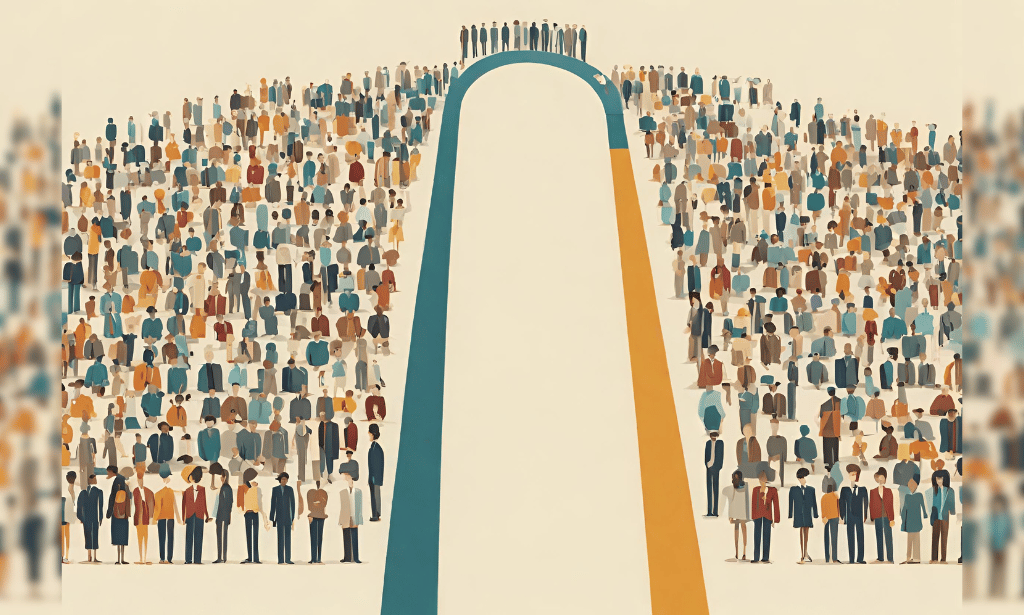How the Rich Are Getting Richer?
In the world of economics, the adage "the rich get richer" holds profound truth. This phenomenon encapsulates the idea that individuals and families with significant wealth tend to accumulate even more wealth over time. But what are the driving forces behind this trend? In this article, we delve into the various factors contributing to the ever-widening gap between the rich and the rest of society.

Historical Context
Throughout history, wealth accumulation has been a hallmark of human civilization. However, the methods and scale of accumulation have evolved over time. From feudal societies to the industrial revolution, certain individuals and families have consistently found ways to amass vast fortunes. Factors such as access to resources, political influence, and technological advancements have played pivotal roles in shaping the distribution of wealth.
Economic Systems and Policies
The economic system in place often dictates the distribution of wealth within a society. Capitalist economies, for instance, tend to reward entrepreneurship and innovation, leading to the concentration of wealth in the hands of a few. Moreover, policies crafted to benefit the wealthy, such as tax cuts and deregulation, further exacerbate income inequality.
Technological Advancements
In recent decades, technological advancements have accelerated the pace of wealth accumulation. Industries such as finance and technology have witnessed unprecedented growth, creating opportunities for individuals to amass wealth at an unprecedented rate. However, the rise of automation also threatens to widen the gap between the rich and the working class, as low-skilled jobs become increasingly obsolete.
Globalization
The interconnected nature of the global economy has facilitated wealth accumulation on a global scale. Multinational corporations and ultra-wealthy individuals often exploit loopholes in international tax laws, allowing them to evade taxes and hoard wealth offshore. Moreover, free trade agreements and outsourcing practices have contributed to the decline of manufacturing jobs in developed countries, further widening the wealth gap.
Education and Social Mobility
Access to quality education is often touted as the great equalizer, yet socioeconomic barriers continue to impede social mobility for many. While education can provide individuals with the skills necessary to succeed in the workforce, disparities in funding and resources perpetuate inequality. Additionally, systemic issues such as discrimination and income inequality make it difficult for lower-income individuals to climb the economic ladder.
Investment Strategies
The wealthy employ various investment strategies to grow their wealth exponentially. From real estate and stocks to venture capital and private equity, high-net-worth individuals have access to a plethora of investment opportunities that yield high returns. Moreover, the power of compound interest allows the wealthy to multiply their wealth over time, further widening the wealth gap.
Inheritance and Generational Wealth
Inherited wealth plays a significant role in perpetuating economic inequality. Families with generational wealth have access to resources and opportunities that are out of reach for the majority of the population. Furthermore, policies surrounding inheritance taxes vary widely, with some countries imposing minimal taxes on large estates, allowing wealth to be passed down from one generation to the next virtually untouched.
Psychological Factors
The mindset and behaviors of the wealthy also contribute to their continued success. Studies have shown that wealthy individuals tend to exhibit traits such as risk-taking and resilience, which are conducive to wealth accumulation. Conversely, psychological barriers such as fear of failure and self-limiting beliefs often hinder wealth creation for others.
Social Networks and Connections
Networking plays a crucial role in wealth creation, as access to influential social circles can open doors to lucrative opportunities. The wealthy often leverage their connections to secure favorable deals and access capital, further solidifying their position at the top of the economic hierarchy.
Entrepreneurship and Innovation
Entrepreneurship serves as a pathway to wealth creation for many individuals. By identifying market opportunities and leveraging innovative ideas, entrepreneurs can build successful businesses from the ground up. However, access to resources and capital is often limited for aspiring entrepreneurs from disadvantaged backgrounds, perpetuating inequality.
Taxation Systems
The effectiveness of taxation systems in addressing wealth inequality varies widely across different countries. While progressive taxation aims to redistribute wealth from the rich to the poor, loopholes and exemptions often benefit the wealthy. The debate over tax reform continues to be a contentious issue, with proponents arguing for higher taxes on the wealthy to fund social programs and alleviate poverty.
Philanthropy and Social Responsibility
Many wealthy individuals engage in philanthropic efforts as a means of giving back to society. While philanthropy can have positive impacts on communities in need, it also raises questions about the role of the ultra-wealthy in addressing systemic issues such as poverty and inequality. Critics argue that philanthropy is often used as a means of maintaining power and influence, rather than addressing root causes of social problems.
Societal Implications
The widening wealth gap has far-reaching implications for society as a whole. Economic inequality has been linked to social unrest, political instability, and decreased social mobility. Moreover, the concentration of wealth in the hands of a few threatens to undermine democratic principles, as wealthy individuals wield disproportionate influence over political processes and policymaking.
Conclusion
In conclusion, the phenomenon of the rich getting richer is a complex interplay of economic, social, and political factors. From historical legacies to contemporary policies, various forces perpetuate the widening gap between the wealthy elite and the rest of society. Addressing this issue requires comprehensive reform across multiple fronts, including tax policy, education, and social welfare programs.

You must be logged in to post a comment.